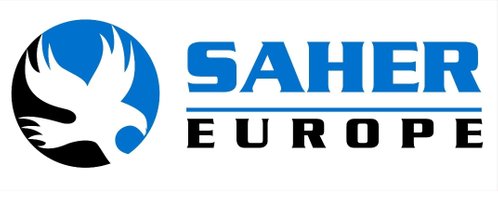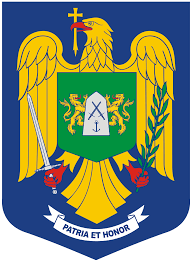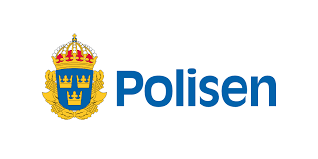Publications
Thank you! Your submission has been received!
Oops! Something went wrong while submitting the form.
XX Publications
December 3, 2023
Navigating through dense waters: a toolbox for creating maritime density maps
SETN '22: Proceedings of the 12th Hellenic Conference on Artificial Intelligence, 2022
December 3, 2023
Data Driven Digital Twins for the Maritime Domain
Volume 6: Technology and Science for the Ships of the Future, Pages 744 - 751, 2022
December 4, 2023
Vessel Traffic Density Maps Based on Vessel Detection in Satellite Imagery
IEEE GARSS, 2022
December 4, 2023
COVID-19 impact on global maritime mobility
Scientific Reports volume 11, 2021
December 4, 2023
A computer vision approach for trajectory classification
22nd IEEE International Conference on Mobile Data Management (MDM), 2021
December 4, 2023
A Big Data framework for Modelling and Simulating high-resolution hydrodynamic models in sea harbours
Global Oceans 2020: Singapore – U.S. Gulf Coast, 2020
December 4, 2023
No items found.
Modelling and simulating vessel emissions in real time based on terrestrial AIS data
Global Oceans 2020: Singapore – U.S. Gulf Coast, 2020
December 4, 2023
No items found.
Vessel detection using image processing and Neural Networks
IEEE IGARSS 2020, 2020
December 10, 2023
MongoDB Vs PostgreSQL: A comparative study on performance aspects
GeoInformatica (2020), 2020
December 10, 2023
A distributed framework for extracting maritime traffic patterns
INTERNATIONAL JOURNAL OF GEOGRAPHICAL INFORMATION SCIENCE, 2020
December 10, 2023
Automatic Maritime Object Detection Using Satellite imagery
IEEE Oceans 2020, 2020
December 10, 2023
Vessel detection using image processing and Neural Networks
IEEE IGARSS 2020, 2020
December 10, 2023
Real-time maritime anomaly detection: detecting intentional AIS switch-off
International Journal of Big Data Intelligence (IJBDI), Vol. 7, No. 2, 2020, 2020
December 10, 2023
Industry Paper: Classification of vessel activity in streaming data
DEBS ’20, July 13–17, 2020, Virtual Event, 2020
December 10, 2023
Automatic Fusion of Satellite Imagery and AIS data for Vessel Detection
22th International Conference on Information Fusion (FUSION), Ottawa, ON, Canada,, 2019
December 10, 2023
A distributed spatial method for modeling maritime routes
IEEE Access, 2020
December 10, 2023
A data driven approach to maritime anomaly detection
1st Maritime Situational Awareness Workshop MSAW 2019, 2019
December 10, 2023
Monitoring Marine Protected Areas using Data Fusion and AI Techniques
1st Maritime Situational Awareness Workshop MSAW 2019, 2019
December 10, 2023
A distributed lightning fast maritime anomaly detection service
OCEANS 2019 MTS/IEEE, 2019
December 15, 2023
Preliminary Inter-comparison of AIS Data and Optimal Ship Tracks
TransNav, the International Journal on Marine Navigation and Safety of Sea Transportation, Vol. 13, No. 1, doi:10.12716/1001.13.01.04, pp. 53-61, 2019
December 15, 2023
A comparison of supervised learning schemes for the detection of search and rescue (SAR) vessel patterns
Geoinformatica, 2019
December 15, 2023
BigDataOcean Project: Early Anomaly Detection from Big Maritime Vessel Traffic Data
COMPIT'19, 2019
December 15, 2023
Vessel Profile Indicators using Fuzzy Logic Reasoning and AIS
UBICOMM, 2018
December 15, 2023
Real Time Autonomous Maritime Navigation using Dynamic Visibility Graphs
Proceedings of the 2018 IEEE OES Autonomous Underwater Vehicle Symposium, 2018
December 15, 2023
Countering Real-Time Stream Poisoning: An Architecture for Detecting Vessel Spoofing in Streams of AIS Data
IEEE Big Data Intelligence and Computing, 2018
January 10, 2024
No items found.
SELECT – Artificial Intelligence in Inland Navigation
Published in the journal Internationales Verkehrswesen Issue 2 | 2022
January 10, 2024
No items found.
CADMUSS – an innovative project to improve maritime safety
Authors: Prof. Dr. Sönke Reise, Dr. Carsten Hilgenfeld, Diego Piedra-Garcia
January 10, 2024
No items found.
Determining the bilge water waste risk and management in the Gulf of Antalya by the Monte Carlo method
Authors: Ömer Harun Özkaynak, Gönül Tuğrul İçemer
January 10, 2024
No items found.
FleetMon Supports the Development of Environmental Impact Assessment on the Brazilian Coast
Authors: Dr. Daniel Zacharias, Dr. Adalgiza Fornaro, Maíra Pippus and Tanja Lohrmann
January 10, 2024
Scrapping Probabilities and Committed CO2 Emissions of the International Ship Fleet
Authors: Maximilian Held, Boris Stolz, Jan Hoffmann, Gil Georges, Michele Bolla, Konstantinos Boulouchos
January 10, 2024
The CO2 reduction potential of shore-side electricity in Europe
Authors: Boris Stolz, Maximilian Held, Konstantinos Boulouchos
January 10, 2024
Estimation of worldwide ship emissions using AIS signals
Authors: Constance Ugé, Tina Scheidweiler, Carlos Jahn
January 10, 2024
Scalable In-Database Machine Learning for the Prediction of Port-to-Port Routes
January 10, 2024
Green shipping: using AIS data to assess global emissions
Authors: Constance Ugé, Carlos Jahn
January 10, 2024
How a real-time-based sea traffic forecast helps to organize and optimize the flow of maritime goods
Author: Dana Meißner
January 10, 2024
Generating a node in an AIS-based routing graph for improved Estimated Time of Arrival. (Big) Data challenge: using AIS for generating a routing graph
Authors: Carsten Hilgenfeld, Nina Vojdani, Frank Heymann, Evamarie Wiessner, Bettina Kutschera, Chris Bünger
January 10, 2024
No items found.
Composition, spatial distribution and sources of macro-marine litter on the Gulf of Alicante seafloor (Spanish Mediterranean)
Authors: Santiago García-Rivera, Jose Luis Sánchez Lizaso, Jose María Bellido Millán
January 10, 2024
No items found.
Climate change, non-indigenous species and shipping: assessing the risk of species introduction to a high-Arctic archipelago
Authors: Chris Ware, Jørgen Berge, Jan H. Sundet, Jamie B. Kirkpatrick, Ashley D. M. Coutts, Anders Jelmert, Steffen M. Olsen, Oliver Floerl, Mary S. Wisz, Inger G. Alsos
January 15, 2024
No items found.
The Big Picture: An Improved Method for Mapping Shipping Activities
By Alexandros Troupiotis-Kapeliaris, Dimitris Zissis, Konstantina Bereta, Marios Vodas, Giannis Spiliopoulos andGiannis Karantaidis
April 10, 2024
No items found.
GMSA: A Digital Twin Application for Maritime Route and Event Forecasting
Georgios Grigoropoulos, Giannis Spiliopoulos, Ilias Chamatidis, Manolis Kaliorakis, Alexandros Troupiotis - Kapeliaris, Marios Vodas, Evangelia Filippou, Eva Chondrodima, Nikos Pelekis, Yannis Theodoridis, Dimitris Zissis, Konstantina Bereta
April 11, 2024
No items found.
A Scalable System for Maritime Route and Event Forecasting
Georgios Grigoropoulos, Giannis Spiliopoulos, Ilias Chamatidis, Manolis Kaliorakis, Alexandros Troupiotis - Kapeliaris, Marios Vodas, Evangelia Filippou, Eva Chondrodima, Nikos Pelekis, Yannis Theodoridis, Dimitris Zissis, Konstantina Bereta
April 11, 2024
No items found.
Patterns of Life : Global Inventory for maritime mobility patterns
Georgios Grigoropoulos, Giannis Spiliopoulos, Marios Vodas, Dimitris Zissis, Konstantina Bereta
Require AIS data for your project?
Please reach out to us to discuss which Kpler offering will support your research project or academic study in the best possible and efficient way.












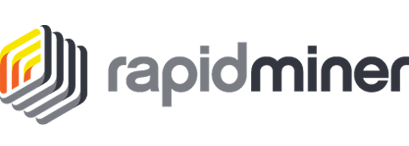










.png)


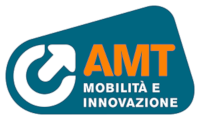







.png)



